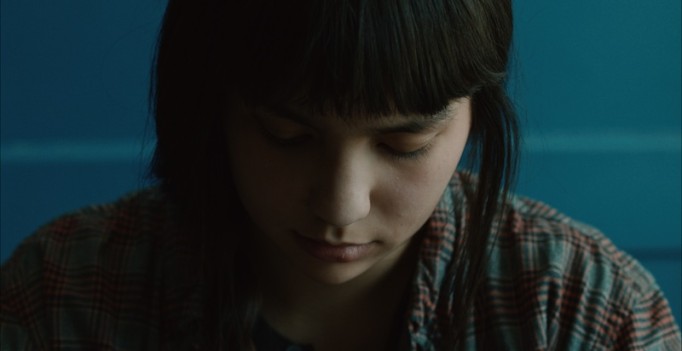Edited and directed by Wiebke von Carolsfeld, The Saver follows Fern (Imajyn Cardinal), a newly orphaned 16 year-old who tries to avoid her mother’s fate – and Youth Protection – by becoming a millionaire. Following the advice she finds in a book called How to be a Millionaire, Fern aims to save every penny from the live-in janitor and dishwashing jobs she is able to get by lying about her age. The film is based off of the young adult novel of the same name by Edeet Ravel, and certainly isn’t the first time that von Carolsfeld’s filmmaking efforts have focused on adapting literature. Previously, she worked on the film adaptation of the Can-Lit classic Fugitive Pieces in 2007 and on 2013’s Stay, which was based on a novel by Aislinn Hunter.
Set against the backdrop of a grim Montreal winter, The Saver showcases Imajyn Cardinal’s incredible talent as she brings equal amounts of vulnerability and toughness to Fern’s character. Brandon Oakes (The Jingle Dress, Rhymes for Young Ghouls) is likable, if slightly flat, as Fern’s estranged Uncle Jack. Below the film’s surface, The Saver hints at racial, economic and colonial issues that directly affect the daily lives of many people. These ideas are never overt, and never take away from the human elements of the story that the film is trying to tell. There is an intimacy and immediacy to the cinematography itself, never are we very far from Fern. She is firmly at the centre of things and any political or social commentary is consistently foregrounded by her expressions and movements. The soundtrack is suitably subdued and never distracts from Cardinal’s performance.
For a film that spends so much time building an intricate portrait of its protagonist and straightforwardly depicting her struggles, audiences may find the feel-good final act a bit simplistic. The threads of the plot are tied together in a manner that is a bit too tidy to do justice to the realism that Wiebke von Carolsfeld seems to be striving for. That being said, the filmmaker never exploits the poverty or minority status of her central characters and Cardinal gives Fern the strength, wit, and misdirected youthful cynicism necessary to make her believable.
For as sad as Fern’s story is, The Saver contains moments of humour and tenderness that allow the viewer room to see its protagonist as more than the unfortunate situation she has found herself in. It is this element of intimacy and realism that makes it difficult not to be moved by this film, despite its flaws.
**********
Do You Tweet? Follow These Tweeple:
Shannon Page: @ShannonEvePage




Be the first to comment